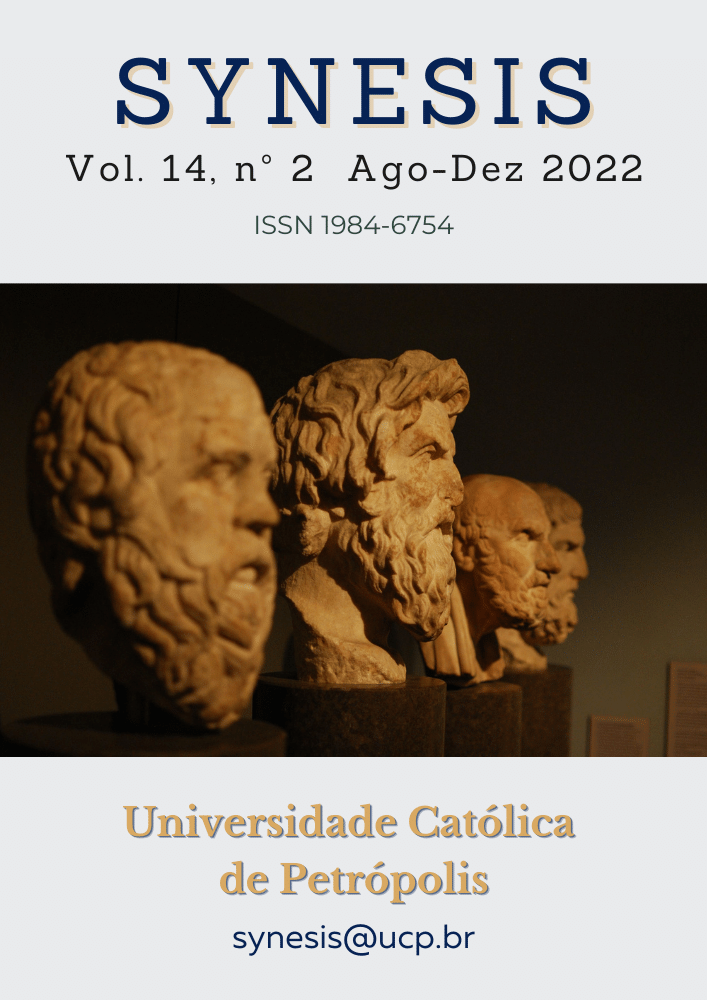Resumo
O objetivo deste estudo é determinar se os objetivos de realização dos jovens jogadores de futebol diferem de acordo com seus níveis de satisfação de vida. 306 jogadores de futebol nas Ligas Profissionais da Turquia e na província de Izmir foram incluídos no estudo. Formulário de informações pessoais, Escala de Satisfação de Vida (Yetim, 1991) e Gols de Realização 2x2 no Inventário Esportivo (Kazak Çetinkalp, 2009) foram aplicados aos participantes, respectivamente. Na análise estatística dos dados foram utilizadas estatísticas descritivas, análise de classificação e teste t para grupos independentes. Os resultados de satisfação de vida dos jovens jogadores de futebol e atletas com baixa e alta satisfação de vida foram determinados pelo método de classificação das médias K. Em seguida, os dois grupos determinados foram comparados em termos de sua orientação-alvo. Quando foram comparados jogadores de futebol com baixa satisfação de vida e jogadores de futebol com alto nível de satisfação de vida, não foi observada nenhuma diferença significativa em termos de metas de maestria e de evitação de maestria, enquanto que houve diferenças estatisticamente significativas em termos de metas de desempenho-abordagem e de evitação de desempenho e as metas de desempenho-abordagem e de evitação de desempenho dos jogadores com alta satisfação de vida foram superiores às dos jogadores com baixa satisfação de vida. Como resultado, as metas de desempenho-abordagem e de evitar o desempenho são metas que significam tentar fazer melhor do que outros indivíduos e não ser pior do que outros indivíduos.
Referências
Aksaray S; Yıldız, A; Ergün, A. (1998, Temmuz). Huzurevi ve evde yaşayan yaşlıların umut- suzluk düzeyleri. (1. Ulusal Evde Bakım Kongresinde sunulan bildiri.) Marmara Üniver- sitesi, İstanbul.
Amarantos, E., Martinez, A., & Dwyer, J. (2001) Nutrition and quality of life in older adults. J Gerontol A Biol Sci Med Sci, 56 Spec No 2, 54-64.
Antaramian, S. (2017) The importance of very high life satisfaction for students’ academic success, Cogent Education, 4:1, DOI: 10.1080/2331186X.2017.1307622
Antaramian, S. (2015). Assessing psychological symptoms and well-being: Application of a dual-factor mental health model to understand college student performance. Journal of Psychoeducational Assessment, 33(5), 419–429.
Cantor, N., Fleeson, W. (1991). Life tasks and self-regulatory processes. In Maehr, M. L., Pintrich, P. R. (Eds.), Advances in motivation and achievement (Vol. 7, pp. 327–369). Greenwich, CT: JAI Press.
Conroy DE, Eliot AJ, Hofer SM. (2003). A 2x2 achievement goals questionnaire for sport: Evidence for factorial invariance, temporal stability, and external validity. Journal of Sport & Exercise Psychology, 25(4), 456-476.
Dalbudak, İ., Yılmaz, T., Yiğit, SM. The relationship between university students' quality of life and nutrition. Progress in Nutrition, 2020; 22(1), 112-121.
Diener, E. (1984). Subjective well-being. Psychological Bulletin, 95(3), 542–575. https://doi.org/10.1037/0033-2909.95.3.542
Diener, E., Emmons, R. A., Larsen, R. J., & Griffin, S. (1985). The Satisfaction With Life Scale. Journal of Personality Assessment, 49(1), 71–75
Elliot, A. J., & McGregor, H. A. (2001). A 2 × 2 achievement goal framework. Journal of Personality and Social Psychology, 80(3), 501–519. https://doi.org/10.1037/0022-3514.80.3.501
Elliot, A. J., & Thrash, T. M. (2001). Achievement goals and the hierarchical model of achievement motivation. Educational Psychology Review, 13(2), 139–156. https://doi.org/10.1023/A:1009057102306
Emmons, R. A. (1986). Personal strivings: An approach to personality and subjective well-being. Journal of Personality and Social Psychology, 51(5), 1058–1068. https://doi.org/10.1037/0022-3514.51.5.1058
Eniseler, N. (2009). Çocuk ve gençlerde futbol. İstanbul: Futbol Eğitim Yayınları.
Gilman, R., & Huebner, S. (2003). A review of life satisfaction research with children and adolescents. School Psychology Quarterly, 18(2), 192–205
Kasser, T., & Ryan, R. M. (1993). A dark side of the American dream: Correlates of financial success as a central life aspiration. Journal of Personality and Social Psychology, 65(2), 410–422
Kazak Çetinkalp, F. Z. “Sporda hür irade kuramı ve başarı hedefi kuramının değerlendirilmesi”. Ege Üniversitesi, Sağlık Bilimleri Enstitüsü, Doktora tezi, 2009.
Koltarla, S. (2008). Taksim Eğitim ve Araştırma Hastanesi Sağlık Personelinin Yaşam Kalitesinin Araştırılması. Yüksek Lisans Tezi. İstanbul.
Köker, S. (1991). Normal ve sorunlu ergenlerin yaşam doyumu düzeylerinin karşılaştırılması. Yayınlanmamış Yüksek Lisans Tezi, Ankara Üniversitesi Sosyal Bilimler Enstitüsü, Ankara.
Michalos, A.C. (1985). Multiple Discrepancies Theory (MDT). Social Indicators Research, 16, 347-413.
Morris RL, Kavussanu M. (2008). Antecedents of approach-avoidance goals in sport. Journal of Sports Sciences, 26(5), 465-476.
Note: This study was presented as an oral presentation at the “1’st International Congress on Healthy Life” (2018,Istanbul/Turkey).
Özgen, F. (2012). Ç.O.M.Ü. Beden Eğitimi ve Spor Yüksekokulu Öğrencilerinin Yaşam Doyumu Düzeylerinin İncelenmesi. Mezuniyet Tezi, Çanakkale On Sekiz Mart Üniversitesi, Çanakkale.
Renshaw, T. L., & Cohen, A. S. (2014). Life satisfaction as a distinguishing indicator of college student functioning: Further validation of the two-continua model of mental health. Social Indicators Research, 117(1), 319–334.
Ryan, R. M., Sheldon, K. M., Kasser, T., & Deci, E. L. (1996). All goals are not created equal: An organismic perspective on the nature of goals and their regulation. In P. M. Gollwitzer & J. A. Bargh (Eds.), The psychology of action: Linking cognition and motivation to behavior (pp. 7–26). The Guilford Press.
Toros, T., Akyüz, U., Bayansalduz, M., & Soyer, F. (2010). Görev ve ego yönelimli hedeflerin yaşam doyumu ile ilişkisinin incelenmesi (dağcılık sporu yapanlarla ilgili bir çalışma). Uluslararası İnsan Bilimleri Dergisi, 7(2), 1039-1050.
Vara, Ş. (1999). Yoğun bakım hemşirelerinde iş doyumu ve genel yaşam doyumu arasındaki ilişkini incelenmesi. Yayımlanmamış Yüksek Lisans Tezi, Ege Üniversitesi, Sosyal Bilimler Enstitüsü, İzmir
Veenhoven, R. (1988). The utility of happiness. Social Indicators Research, 20(4), 333–354.
Yetim U. (1991). Kişisel Projelerin Organizasyonu Açısından Yaşam Doyumu. Yayınlanmamıs Doktora Tezi. Ege Üniversitesi. Sosyal Bilimler Enstitüsü.
Yetim, Ü. (1993). Life Satisfaction: A Study Based on the Organization of Personal Projects. Social Indicators Research, 29 (3), 277-289.
Yılmaz, T., Dalbudak, İ., Yiğit, ŞM. Relationship between life satisfaction and nutrition of students at the faculty of sports and health sciences at university, Progress in Nutrition 2020; 22(1), 1-15.

Este trabalho está licenciado sob uma licença Creative Commons Attribution-NonCommercial-NoDerivatives 4.0 International License.
Copyright (c) 2022 Synesis (ISSN 1984-6754)

